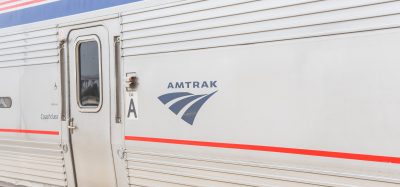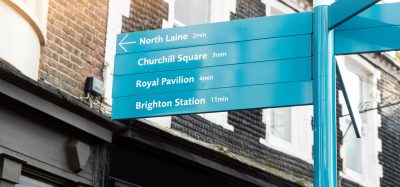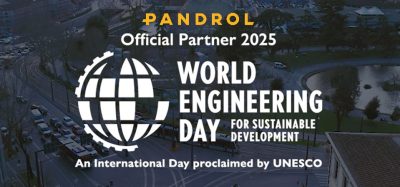Keen to develop services to drive growth
Posted: 8 June 2012 | | No comments yet
Arriva was the first, and remains, the only private rail company operating in the Polish market. Supported by over 150 employees, the company delivers 2.5 million train kilometres annually, serving over 100 stations and handling over two million passengers in the Kujawsko-Pomorskie and Pomorskie voivodeships. Arriva RP is committed to providing a safe, secure and high-quality service to all of its passengers.
Arriva entered the Polish rail market in 2007 via a joint venture with PCC Rail, a company that held a passenger license and had vast knowledge of the Polish rail freight market. Arriva brought a wealth of experience in the public transport and rail passenger operations arena to the joint venture. The Consortium began operations in December 2007 after securing a three-year tender in the Kujawsko-Pomorskie voivodeship.
From the beginning, Arriva encountered several difficulties associated with the short time for mobilisation (contract was signed in August, while operations were due to start in December of same year) and delays in the polonisation of rolling stock.
Arriva was the first, and remains, the only private rail company operating in the Polish market. Supported by over 150 employees, the company delivers 2.5 million train kilometres annually, serving over 100 stations and handling over two million passengers in the Kujawsko-Pomorskie and Pomorskie voivodeships. Arriva RP is committed to providing a safe, secure and high-quality service to all of its passengers. Arriva entered the Polish rail market in 2007 via a joint venture with PCC Rail, a company that held a passenger license and had vast knowledge of the Polish rail freight market. Arriva brought a wealth of experience in the public transport and rail passenger operations arena to the joint venture. The Consortium began operations in December 2007 after securing a three-year tender in the Kujawsko-Pomorskie voivodeship. From the beginning, Arriva encountered several difficulties associated with the short time for mobilisation (contract was signed in August, while operations were due to start in December of same year) and delays in the polonisation of rolling stock.
Arriva was the first, and remains, the only private rail company operating in the Polish market. Supported by over 150 employees, the company delivers 2.5 million train kilometres annually, serving over 100 stations and handling over two million passengers in the Kujawsko-Pomorskie and Pomorskie voivodeships. Arriva RP is committed to providing a safe, secure and high-quality service to all of its passengers.
Arriva’s initial entry into the Polish market
Arriva entered the Polish rail market in 2007 via a joint venture with PCC Rail, a company that held a passenger license and had vast knowledge of the Polish rail freight market. Arriva brought a wealth of experience in the public transport and rail passenger operations arena to the joint venture. The Consortium began operations in December 2007 after securing a three-year tender in the Kujawsko-Pomorskie voivodeship.
From the beginning, Arriva encountered several difficulties associated with the short time for mobilisation (contract was signed in August, while operations were due to start in December of same year) and delays in the polonisation of rolling stock. Moreover, the restructuring of the railway industry, which has traditionally been a natural monopoly sector, had met with considerable resistance in the market. No maintenance facilities and rolling stock were available to rent, there were high fuel prices, exceptionally high commission rates for ticket sales and train announcements supplied by competitors – these were just some of the difficulties met by Arriva.
In 2009, PCC Rail was taken over by DB Schenker who subsequently expressed interest in disposing of its shares in passenger operations. Arriva took over the remaining 50% shares in the operational company and in the Consortium the following year. By that time, Arriva RP (formerly Arriva PCC) gained its own passenger license and required safety certificates. At the end of 2010, Arriva participated in a re-tender and was awarded a 10-year contract to operate regional transport on all non-electrified routes in the Kujawsko-Pomorskie voivodeship which helped to increase its operations that had been running by Arriva for the previous three years. It was the first tender of such duration in Poland. One of the grading criteria was investment into new rolling stock – four brand new trains bid by Arriva will be delivered in late-2012.
Arriva’s developments
Besides the main contract in Kujawsko- Pomorskie, Arriva has also been successful in expanding its operation in surrounding areas. Most importantly, Arriva signed a contract in the Pomorskie voivodeship for revitalisation of the Malbork-Grudziądz line. During the summer holidays Arriva makes special weekend connections to the seaside. In 2009, and in cooperation with Pomorskie Stowarzyszenie Miłośników Kolei Żelaznych, the parties inaugurated a service named ‘train to the Beach’ (Grudziądz-Kwidzyn-Malbork-Nowy Dwór Gdański-Stegna-Sztututowo), which in part is run by Arriva and the last section is operated by a narrow gauge train. During summer 2010, the Arriva Express service commenced operations – the fastest train from Bydgoszcz to Władysławowo and Gdynia. Also since 2010, Arriva has operated a service to Frombork with a ferry connection to Krynica Morska. Arriva’s services to Nowy Dwór Gdański and Frombork are the first passenger services on those tracks for approximately 20 years. Running occasional trains on unused tracks is one of the ways Arriva in Poland shows its special interest in performing a vital role in the promotion of the railways. Outside of those mentioned above, Arriva has operated on the Torun-Chelmza- Unislaw line, which later led to the revitalisation of scheduled passenger services, where Arriva currently offers several pairs of trains per day, Torun-Barbarka, Gdansk-Kartuzy/Bytow (Pomorska Kolej Metropolitalna-Metropolital Pomeranian Railway), Gdansk-PGE Baltic Arena (Euro 2012 venue to which train services will be operated) and Bydgoszcz-Znin, among others. Many of those tracks were previously out of service for many years.
Arriva has placed a priority on the needs of passengers and harmonious cooperation with local governments, especially with Marshal’s Offices which organise regional rail passenger transport in Poland, as well as municipal authorities. Regular marketing to understand passenger needs helps Arriva to create an attractive transportation offer. Arriva currently offers a regional KP tariff in the voivodeship, which is the lowest priced tariff offered to any passengers in Poland. Outside of this, Arriva organises a number of price promotions, special award-contests to loyal customers, cooperates with cultural and tourist institutions and takes an active part in local communities.
In the Polish market, Arriva has been a leader in the introduction of modern distribution channels – almost 100% of sales on-board trains are made using high-speed mobile terminals. Additionally, Arriva successively introduced modern ticket vending machines and the ability to purchase tickets by mobile phone.
Market developments and difficulties in market development
As previously mentioned, Arriva’s entry into the Polish market was not always welcomed by the closed Polish rail community. However, as time has passed, the industry has started to become more open for business. Since the change of ownership of the Przewozy Regionalne cooperation with Arriva’s main competitor has greatly improved. PKP PLK, the main infrastructure provider, has created a Rail Operator’s Forum which has provided operators outside of the main-stream (current or former PKP companies) with a forum in which to raise issues. While the cooperation will no doubt continue to develop in the future, a very significant improvement over the past four years has to be noted. It is also worth mentioning the changing role of the Regulatory Office of Railway Transport, which has become more involved in issues affecting market competition, relations between operators and the infrastructure provider, as well as becoming a passenger rights’ advocate. In general, more industry stakeholders are starting to listen, which certainly provides optimism to companies like Arriva hoping to improve market conditions.
However, there are still some issues that require addressing in order to accelerate the pace of market development. The main issue is related to the lack of competitive tenders.
A new law has been implemented that has relaxed the need for competitive tendering. The law took advantage of the opportunity given by EC 1370 resolution that allows directawards to anyone in the railway market. The opportunity has been used to award intraregional services for 10 years to PKP Intercity.
In most cases, outside of the regionallyowned companies, tenders are still announced. However, the timing of the bids and contract durations favour the incumbent operator; often resulting in only one bid. It is quite common in Poland for tenders to give 1-3 months mobilisation time, with some examples where the bids were due after the start of operations. Most tenders usually have a very short duration, ranging from one to three years. Over the next couple of years, no tenders for longer than three years will be issued as a new law prevents such contracts until transportation plans are developed by regional authorities. Given that there is no real rolling stock leasing market for DMUs or EMUs and a limited one for locos, those characteristics make it quite unattractive to participate in announced tenders.
Another factor preventing good bid model planning has been the inability to predict the future. This is of special concern in the case of PLK infrastructure charges, both in terms of possible changes to the pricing system and actual charges per km, which can change very significantly from year to year. There is also an unresolved situation about financing of train stations and what costs operators might have to bear for those.
What’s next for the market?
It’s very difficult to answer this question. The market is evolving continuously so the environ – ment is changing all the time.
The leading role in that respect seems to be with voivodeships who are responsible for ordering regional services. They are all together the common owners of the key player in the market, Przewozy Regionalne (PR). It is no secret in Poland that PR has its financial problems and potentially requires restructuring. However, the difficult position of the voivode – ships has prevented them from finding a common vision for the company. Supervision of PR by 16 voivode ships has proven itself to be a difficult task.
Given the above, some of the voivodeships have started to break away parts of their network from PR by starting to announce slightly more competitive tenders. Stronger voivodeships have also started creating their own 100% owned companies so they can retain better control. At the time of writing this article, there are already four fully operational companies owned by one region. They are: Koleje Mazowieckie, Koleje Dolnoslaskie, Koleje Wielkopolskie and Koleje Slaskie. In addition, the Lodzkie voivodeship has its own company that is currently gathering the necessary certificates to start operations, the Pomorskie voivodeship has its shares in PKP Szybka Kolej Miejska (in Tri-city area) and Zachodniopomorskie is considering whether to create its own operator.
For those voivodeships, the creation of its own operator has done a lot to increase the quality of services, but did not necessarily have an effect on reducing the need for financing provided by the voivodeship; in some cases the financing needs have actually increased.
Arriva’s plans for the future
Our place in the market will very much depend on the further desired market liberalisation. For the market to become more open there are some things that should occur, including:
- Tenders and non-direct-awards should be the common way of awarding services
- Proper mobilisation time has to be provided for winners
- Tender length needs to be long enough to allow the operator to invest and make a return on its investment and also to develop innovative services that benefit the passengers
- Stability into infrastructure pricing would be required or infrastructure pass through to client authorities should occur
- Equal access to data should be shared with all potential bidders, especially on historic ticket revenues or patronage numbers
- Annual indexation of subsidy levels is desirable
- Nationwide ticket system and revenue clearinghouse
- Finding a solution to the problem of financing services at the borders of voivodeships
- Market created for accessing electric rolling stock homologated for the Polish market.
Arriva is keen to develop its services in Poland and with the appropriate business and industry conditions we see a significant opportunity to develop innovative, cost effective, high quality services to passengers and voivodeships. The skills and experience built around Europe places Arriva in an ideal position to share these attributes in new surroundings in Poland.
About the author
Damian Grabowski joined Arriva at the beginning of 2008 and is now Commercial Director and Board Member of Arriva Polska, responsible for Arriva’s presence in Poland. Also in 2008 he joined the Management Board of Arriva RP (formerly Arriva PCC), Arriva’s rail operating company in the Polish market, and in 2012 became President of its Management Board. Damian’s work experience prior to joining Arriva comes mostly from the airline industry where he worked in various managerial positions in American Airlines and Wizz Air. Damian holds a university degree in Marketing-Distribution and International Business and also earned an MBA Degree at INSEAD (based in Fontainebleau, France) in 2004.







